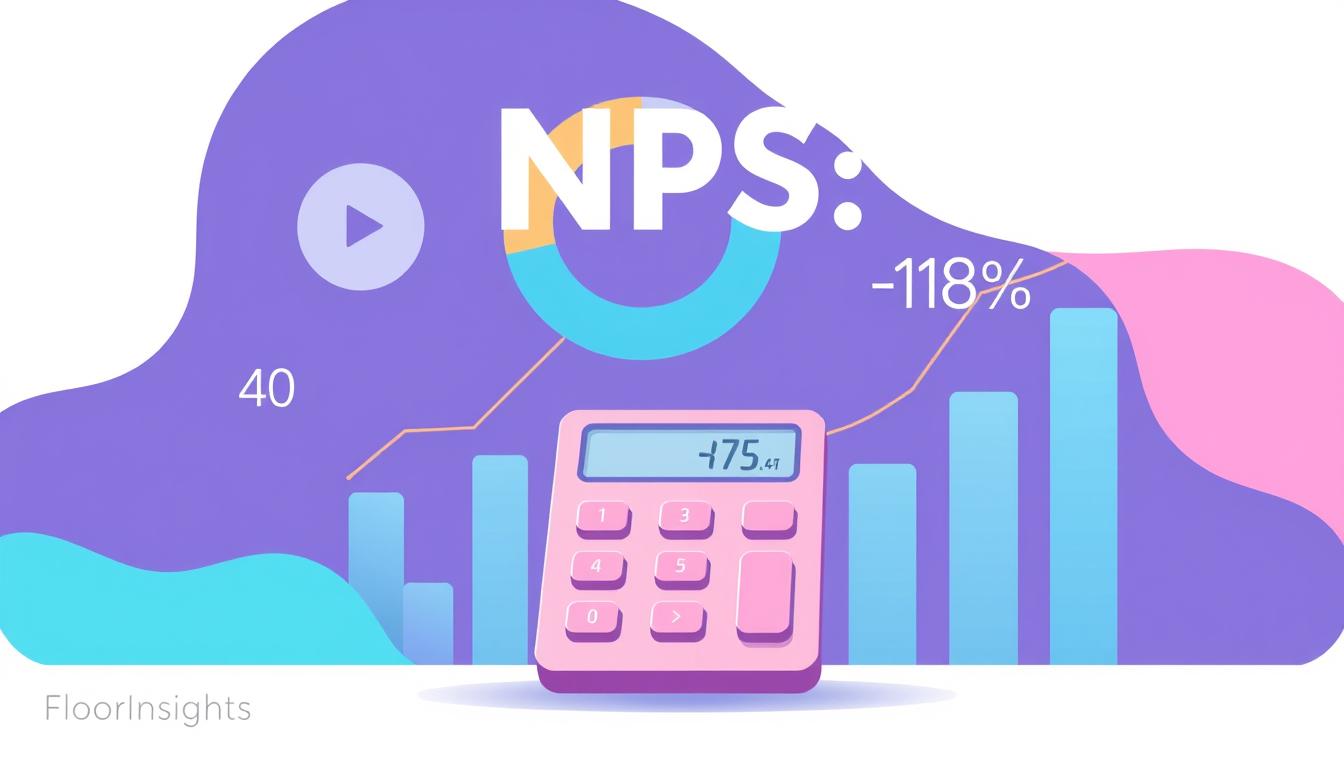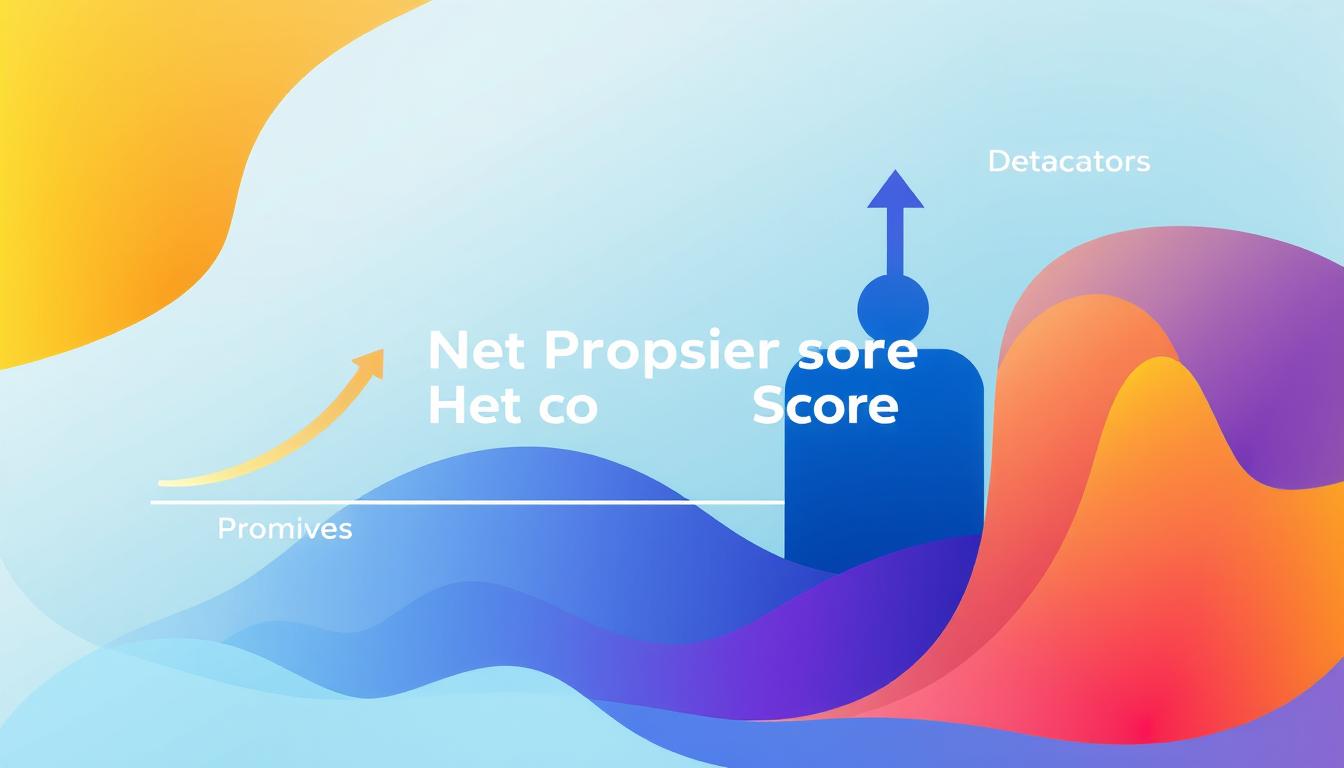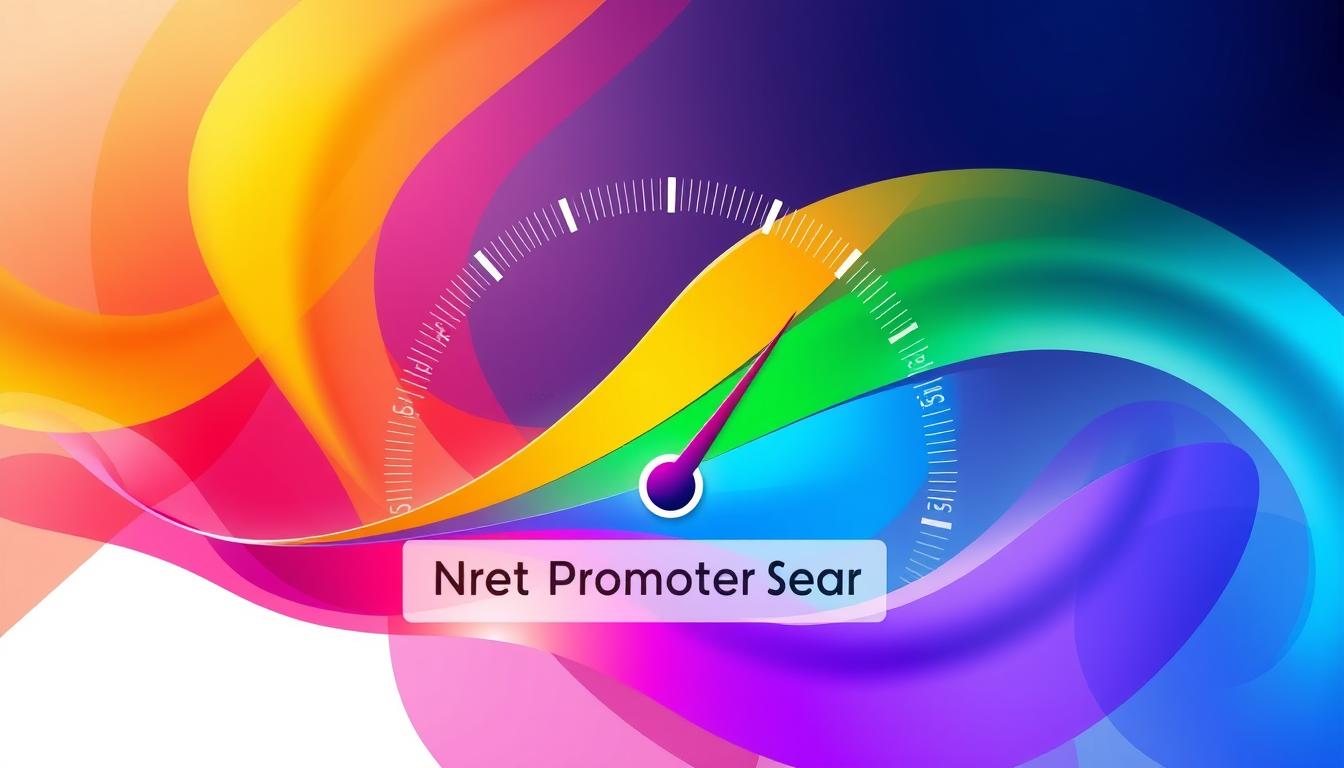As the hospitality industry strives for service excellence, understanding the significance of the Net Promoter Score (NPS) in evaluating customer loyalty has never been more crucial. Particularly in the Indian market, the implementation of NPS offers actionable insights into guest satisfaction and helps hotels maintain a competitive edge. By adopting this customer loyalty metric, businesses can enhance their service standards, ultimately leading to superior guest experiences and heightened loyalty.
Key Takeaways
- Understanding NPS is vital for improving guest satisfaction in the hospitality sector.
- Adopting NPS helps hotels maintain a competitive advantage.
- Implementing NPS drives service excellence in hospitality businesses.
- NPS offers actionable insights for enhancing the overall guest experience.
- Focusing on NPS can lead to heightened customer loyalty and repeat business.
Understanding the Net Promoter Score
To effectively gauge and enhance customer satisfaction, it is crucial to understand the concept of the Net Promoter Score (NPS). This metric serves as a benchmark for evaluating customer loyalty and predicting business growth in the hospitality industry.
Definition and Importance of NPS
The Net Promoter Score is a customer loyalty metric that categorizes customers into three groups: Promoters, Passives, and Detractors. NPS surveys typically consist of one straightforward question: “On a scale of 0 to 10, how likely are you to recommend our service to a friend or colleague?” The responses help businesses ascertain the level of customer satisfaction and gauge their overall loyalty.
Promoters (score 9-10) are loyal enthusiasts who will keep buying and refer others, fueling your growth. Passives (score 7-8) are satisfied but unenthusiastic customers who are vulnerable to competitive offerings. Detractors (score 0-6) are unhappy customers who can damage your brand and impede growth through negative word-of-mouth.
Incorporating NPS surveys into your feedback system helps gather meaningful customer feedback, allowing businesses to improve their services and boost customer loyalty.
History and Evolution of NPS in the Hospitality Industry
The concept of the Net Promoter Score was introduced by Fred Reichheld in a Harvard Business Review article in 2003. Since then, it has become an industry standard for measuring customer loyalty across various sectors, including hospitality. This evolution highlights its reliability and effectiveness in predicting business growth.
Over the years, numerous hospitality brands like Marriott and Taj Hotels have successfully implemented NPS surveys to enhance guest experiences and identify areas for improvement. By consistently focusing on customer feedback, these brands have managed to create customer-centric strategies that foster long-term loyalty and growth.
How NPS Impacts Customer Loyalty
Understanding the impact of the Net Promoter Score (NPS) on customer loyalty in the hospitality industry is crucial. NPS, a valuable customer loyalty metric, can significantly influence brand reputation and revenue streams. The key to leveraging NPS lies in comprehending the roles of Promoters and Detractors within a hotel’s customer base.
The Role of Promoters and Detractors
Promoters are those satisfied guests who not only express their loyalty through repeated visits but also actively recommend the hotel to others. They play a vital role in driving new and repeat business, contributing to the hotel’s growth and stability. On the other hand, Detractors are unhappy customers who are likely to share their negative experiences, potentially damaging the hotel’s reputation. Effective management of these groups is essential for maintaining high customer satisfaction and loyalty.
Correlation Between NPS and Repeat Business
Data analysis in the hospitality industry indicates that a high NPS correlates with increased levels of repeat business. Promoters tend to return more frequently and bring new guests, creating a positive cycle of customer retention and loyalty. Thus, focusing on improving NPS can directly enhance a hotel’s performance by fostering a reliable base of loyal customers and minimizing the adverse effects of Detractors. Consequently, this improvement in the customer loyalty metric translates into higher revenues and robust brand loyalty.
By concentrating on the Net Promoter Score, hoteliers can target specific areas for improvement, ensuring that Promoters are encouraged and Detractors‘ issues are addressed promptly.
Conducting Effective NPS Surveys
Implementing NPS Best Practices is crucial for gathering valuable insights. To ensure Efficient NPS Survey Implementation, it’s essential to focus on timing, frequency, and methodology.
First, conducting surveys shortly after a guest’s stay ensures their experience is fresh. For optimal results, we recommend sending the survey within 24-48 hours post-checkout. This timing not only captures accurate feedback but also demonstrates our commitment to promptly addressing guests’ experiences.
Secondly, determining the right survey frequency is key. Regular, but not overly frequent, surveys strike a balance. Quarterly surveys work well for many hotels; they maintain a steady stream of feedback while avoiding survey fatigue.
Employing open and engaging questions enhances the reliability of the data collected. Aim for concise questions that encourage honest and constructive feedback. An example could be: “What aspects of your stay exceeded your expectations, and where could we improve?” This provides guests the opportunity to share detailed insights.
Additionally, ensuring a high response rate is vital. Here are a few strategies to improve engagement:
- Offer incentives like discount codes or complimentary services for survey completion.
- Personalize survey invitations by addressing the guest by name.
- Clearly communicate the purpose of the survey and how the feedback will be used to enhance their future stays.
Finally, efficient NPS survey implementation involves analyzing the feedback to identify trends and areas for improvement. This data plays a crucial role in refining our service and boosting guest satisfaction.
Real-World Results of NPS Implementation in India’s Hotels
The Indian hospitality sector has seen significant transformations with the implementation of Net Promoter Score (NPS) methodologies. By focusing on guest satisfaction, many hotel chains in India have leveraged NPS to improve their services and overall guest experiences.

Case Studies from Major Indian Hotel Chains
Examining NPS case studies from leading hotel chains such as Taj Hotels, Oberoi Hotels & Resorts, and ITC Hotels reveals that a strategic approach to NPS can yield impressive guest satisfaction results. Through meticulous tracking and actionable insights derived from NPS data, these hotel chains have not only improved guest loyalty but also enhanced their brand reputation.
- Taj Hotels: By implementing an NPS feedback loop, Taj Hotels improved their guest satisfaction score by 15% within a year, leading to an increase in repeat bookings.
- Oberoi Hotels & Resorts: Oberoi utilized NPS insights to tailor personalized services, resulting in a 20% boost in guest satisfaction and a significant decrease in detractor feedback.
- ITC Hotels: Consistent NPS surveys helped ITC Hotels identify key areas of service improvement, enhancing overall guest experiences and increasing promoter scores by 10%.
Quantitative and Qualitative Benefits
The benefits of NPS implementation in the Indian hospitality sector extend beyond quantitative measures. Hotels have noticed qualitative improvements in how guests perceive their brand, ultimately fostering a more loyal customer base. Increased guest satisfaction has proven to be a crucial factor in the sustained success and growth of these establishments.
| Hotel Chain | Guest Satisfaction Increase | Promoter Score Improvement |
|---|---|---|
| Taj Hotels | 15% | 20% |
| Oberoi Hotels & Resorts | 20% | 25% |
| ITC Hotels | 10% | 15% |
By focusing on the actionable insights generated from NPS surveys, key players in the Indian hospitality sector have successfully enhanced both quantitative metrics and the overall guest experience, making NPS an invaluable tool for ongoing improvement.
NPS Calculation: Understanding the Numbers
Understanding how to work with NPS data is crucial for making informed decisions in the hospitality industry. By mastering NPS Calculation and effectively analyzing the results, we can convert customer feedback into actionable insights.
How to Calculate Your Net Promoter Score
The NPS Calculation is a straightforward process that involves categorizing customers based on their responses to a key question: “How likely are you to recommend our hotel to a friend or colleague?” Respondents are grouped into three categories:
- Promoters (score 9-10)
- Passives (score 7-8)
- Detractors (score 0-6)
The NPS is calculated using the formula:
(Number of Promoters – Number of Detractors) / (Total Number of Respondents) x 100
This yields a score between -100 and 100. A positive NPS indicates more promoters than detractors, which reflects happier customers.
Analyzing the Results Correctly
Once we’ve conducted the NPS Calculation, it’s vital to dive deeper into the data. Analyzing NPS data involves looking beyond the score and understanding the specific reasons behind customer responses. By segmenting the feedback, we can identify common themes and areas needing improvement.
A detailed analysis often includes categorizing feedback based on service aspects such as:
- Room cleanliness
- Customer service quality
- Dining experiences
- Amenities and facilities
This granular approach to analyzing NPS data allows us to pinpoint where our business excels and where it falls short, enabling targeted strategies to enhance the overall guest experience.
NPS Best Practices for the Hospitality Industry
Enhancing the Net Promoter Score (NPS) in the hospitality industry requires a consistent focus on the guest experience and strategic staff training. By implementing best practices tailored to improving NPS, hospitality businesses can foster stronger customer loyalty and drive repeat business.
Strategies to Enhance Guest Experience
To elevate the guest experience, it is essential to focus on personalized service and proactive problem-solving. Here are some effective strategies:
- Personalization: Understand and anticipate guest needs by leveraging guest data to offer personalized services.
- Proactive Communication: Keep guests informed about their bookings, special offers, and local tips.
- Feedback Mechanisms: Provide easy-to-use channels for guests to share their feedback and act on it promptly.
Training Staff to Improve NPS
Staff training is a key component in achieving Hospitality NPS Enhancement. Here’s how to equip your team:
- Comprehensive Training Programs: Develop training modules focusing on guest interaction, problem-solving, and empathy.
- Ongoing Development: Encourage continuous learning and regular training updates to keep staff skills sharp.
- Recognition and Rewards: Motivate staff through recognition programs that celebrate exceptional service and high NPS scores.
Integrating these strategies effectively into daily operations can significantly boost NPS, enrich the guest experience, and enhance overall business performance.
Benchmarking NPS Against Competitors
In the highly competitive hospitality sector, conducting NPS Benchmarking is essential for understanding where your hotel stands relative to others. Engaging in NPS Benchmarking allows us to gain invaluable insights through competitive analysis, enabling us to set realistic NPS goals and craft strategies to elevate our customer service and experience beyond industry standards.
One of the critical methods to assess our performance is by comparing our Net Promoter Score with those of our competitors. This ensures we have a clear picture of how we are perceived in the broader hospitality market. Through a detailed competitive analysis, we can identify key areas where our services excel or need improvement.
To effectively benchmark our NPS, we analyze:
- Average NPS scores within the hospitality sector.
- Top-performing competitors’ scores.
- Sector-specific trends influencing guest satisfaction.
By evaluating these elements, we can develop a framework to enhance our offerings and differentiate ourselves in the marketplace. For instance, understanding how our competitors achieve high NPS scores can inspire innovative approaches to improve our guests’ experiences.
A practical application of this would be:
| Hotel | Average NPS Score | Key Strengths |
|---|---|---|
| Taj Hotels | 75 | Exceptional customer service, luxury amenities |
| Oberoi Hotels | 72 | Outstanding hospitality, personalized experiences |
| ITC Hotels | 70 | Sustainable practices, high-quality food and beverages |
From such data, we can pinpoint what makes these competitors excel and adapt these successful practices to our strategies. Ultimately, systematic and strategic NPS Benchmarking coupled with thorough competitive analysis ensures that we are not only meeting but exceeding the expectations of our guests.
Challenges and Limitations of NPS
Understanding the challenges and limitations of Net Promoter Score (NPS) is vital to leveraging it effectively. While NPS offers valuable insights, it’s crucial to navigate its shortcomings to avoid misinterpretations that could affect business strategies.
Potential Pitfalls in Conducting NPS Surveys
NPS pitfalls can arise from various factors, such as poorly designed surveys or biased sampling. Common issues include:
- Low response rates, which can skew the results.
- Sampling bias, leading to unrepresentative feedback.
- Ambiguous questions, causing confusion and inaccurate scores.
Addressing Negative Feedback Effectively
Addressing negative feedback is crucial for improving overall customer satisfaction and brand loyalty. Here’s how we can effectively manage it:
- Listen actively to the customer’s concerns and show empathy.
- Respond promptly with a constructive resolution plan to handle their issues.
- Use the feedback to make systematic improvements in services and processes.
It’s essential to acknowledge and rectify the NPS limitations by utilizing other customer insights and metrics. This balanced approach can help mitigate biases and provide a holistic view of customer satisfaction.
| Challenge | Solution |
|---|---|
| Low response rates | Incentivize participation and simplify surveys |
| Sampling bias | Ensure diverse and random sampling |
| Ambiguous questions | Use clear and concise language |
Conclusion
Throughout this article, we have explored the pivotal role of the Net Promoter Score (NPS) in the hospitality industry, particularly focusing on its application within India’s hotels. From understanding the origins and fundamental principles of NPS to examining its direct impact on customer loyalty and repeat business, it is clear that NPS serves as an invaluable Customer Loyalty Metric for service excellence and competitive growth.
By evaluating real-world results and implementing actionable strategies, hotels can effectively leverage their NPS in hospitality. The insights provided through case studies of major Indian hotel chains underscore the quantitative and qualitative benefits of prioritizing this metric. Furthermore, the steps to calculate and analyze NPS, as well as the best practices and training initiatives, equip hotels to enhance guest experiences consistently.
Finally, it’s crucial to acknowledge the potential challenges and limitations associated with conducting NPS surveys. Addressing pitfalls and negative feedback proactively ensures ongoing improvement. As we conclude, it is evident that embracing NPS as a core component of business strategy not only fosters customer loyalty but also positions Indian hotels favorably against their competitors, driving sustained service excellence and business growth.
FAQ
What is NPS and why is it important for the hospitality industry?
Net Promoter Score (NPS) is a customer loyalty metric that gauges the likelihood of customers recommending a service to others. It’s crucial in the hospitality industry because it directly impacts guest satisfaction and service excellence, facilitating a competitive advantage and enhancing overall guest experience, especially in markets like India.
How is NPS calculated in the hospitality industry?
NPS is calculated through a survey that asks guests to rate their likelihood of recommending the hotel on a scale of 0 to 10. Respondents are categorized into Promoters (9-10), Passives (7-8), and Detractors (0-6). The score is computed by subtracting the percentage of Detractors from the percentage of Promoters.
What is the role of Promoters and Detractors in NPS?
Promoters are highly satisfied guests likely to recommend the hotel, thereby driving repeat business and positive word-of-mouth. Detractors are dissatisfied customers who can harm the hotel’s reputation through negative feedback and are less likely to return.
Why is benchmarking NPS scores against competitors important?
What are best practices for conducting effective NPS surveys?
Effective NPS surveys should be timely and frequent, using well-crafted questions that solicit honest and constructive feedback. Engaging guests ensures high response rates and reliable data. Surveys should be implemented following NPS Best Practices to capture actionable insights for service improvement.
What challenges and limitations are associated with NPS?
How does NPS correlate with repeat business in the hospitality industry?
A high NPS indicates a high number of Promoters, which correlates with increased repeat business and customer loyalty. Real-world data reveals that guests who are satisfied and willing to recommend a hotel are more likely to return, positively impacting the hotel’s revenue and reputation.
How can hotels in India implement NPS to enhance guest satisfaction?
What are some strategies to enhance NPS in the hospitality industry?
How to account for NPS pitfalls and limitations effectively?
To effectively manage NPS pitfalls, it’s essential to remain aware of its limitations, address negative feedback proactively, and use it in conjunction with other customer insight tools. A balanced approach ensures a comprehensive understanding of guest satisfaction and areas for improvement.
Related Posts
- Real-World Examples of NPS Success in Small Businesses – NPS for Small and Medium Businesses (SMBs)
- NPS and Customer Journey Mapping: Identifying Opportunities
- Timing is Everything: When to Send NPS Surveys
- The Importance of NPS in Measuring Customer Loyalty
- How to Leverage NPS to Reduce Cart Abandonment – NPS and eCommerce
- The Role of NPS in Franchise Customer Experience Strategies – NPS for Franchise Businesses
- How to Stay Ahead of Competitors with a High NPS Score – NPS and Competitive Analysis
- Building a Competitive Advantage Based on NPS Feedback – NPS and Competitive Analysis






